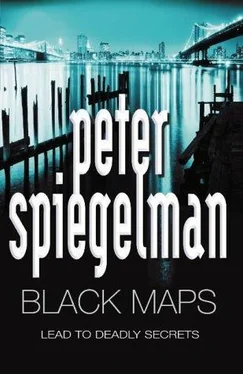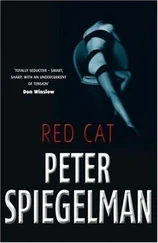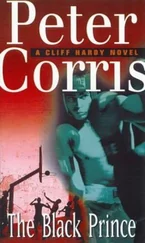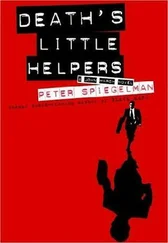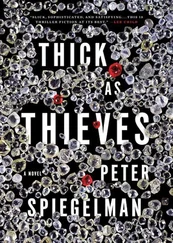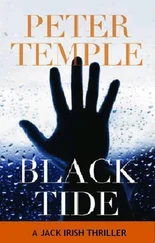Peter Spiegelman - Black Maps
Здесь есть возможность читать онлайн «Peter Spiegelman - Black Maps» весь текст электронной книги совершенно бесплатно (целиком полную версию без сокращений). В некоторых случаях можно слушать аудио, скачать через торрент в формате fb2 и присутствует краткое содержание. Жанр: Криминальный детектив, на английском языке. Описание произведения, (предисловие) а так же отзывы посетителей доступны на портале библиотеки ЛибКат.
- Название:Black Maps
- Автор:
- Жанр:
- Год:неизвестен
- ISBN:нет данных
- Рейтинг книги:4 / 5. Голосов: 1
-
Избранное:Добавить в избранное
- Отзывы:
-
Ваша оценка:
- 80
- 1
- 2
- 3
- 4
- 5
Black Maps: краткое содержание, описание и аннотация
Предлагаем к чтению аннотацию, описание, краткое содержание или предисловие (зависит от того, что написал сам автор книги «Black Maps»). Если вы не нашли необходимую информацию о книге — напишите в комментариях, мы постараемся отыскать её.
Black Maps — читать онлайн бесплатно полную книгу (весь текст) целиком
Ниже представлен текст книги, разбитый по страницам. Система сохранения места последней прочитанной страницы, позволяет с удобством читать онлайн бесплатно книгу «Black Maps», без необходимости каждый раз заново искать на чём Вы остановились. Поставьте закладку, и сможете в любой момент перейти на страницу, на которой закончили чтение.
Интервал:
Закладка:
“And before?”
She chuckled. “I guess history has proven them to be not so significant.” Then her smile faded. For the first time since I’d known her, I saw a tentative look on her face. “And you? Anyone significant since…?” I shook my head. She looked at me for a while, expressionless.
“Lauren says you spend a lot of time alone,” she said.
“Lauren says quite a lot, apparently. Don’t you ever need her to shut up and do some work?” Jane smiled a little, waiting for more of an answer. “It’s something I know how to do,” I said. “It works for me.” Jane was silent, but she did small things with the curve of her mouth and the arch of her brow that managed to convey both deep skepticism and a little sadness. Her huge, black eyes held mine for what seemed a long time. Then her phone rang. Jane flipped it open and listened.
“Shit,” she said after a while. “The meeting’s not till tomorrowwhat the hell is he doing here now?” She listened again. “I don’t care what he’s asking for-give him some coffee, put him in the conference room, tell him I’ll be there in twenty minutes, and shut the door.” She closed her phone. “Shit,” she said softly.
“Not your father this time?” I asked. Her smile was tight and not happy. She shook her head.
“One of my board members, and biggest investors-but not my biggest fan. The board is meeting tomorrow, but he seems to want to get a head start on something.” Her smile softened. “I’ve got to go,” she said. She stood. “I’m sorry to run off. I liked this. Call me when you get your case wrapped up; I’ll buy you dinner.” She put on her coat and fiddled with the buttons and paused. Then she put her small, warm hand gently against the side of my face. And then she kissed me. “I hope you have some luck today,” she said softly, and then she was gone.
I sat there, motionless, the blood rushing in my ears, the heat slowly fading on my lips. When my pulse was under 120 again, and I felt like I’d regained some control over my limbs, I gestured to the waitress for the check.
I was walking home when Neary called. We were on.
Chapter Twenty-four
My alarm went off at twelve-thirty. I had slept deeply and without dreaming for four hours. I splashed water on my face and ate a peanut butter and jelly sandwich and drank coffee while I watched the Weather Channel. The forecast called for temperatures to drop into the twenties that evening, and for snow to fall by dark. I didn’t doubt it, judging from the heavy, pewter clouds that had moved in while I’d slept. I dug out a pair of flannel-lined jeans and some wool socks. I put on one of my miracle-fiber running shirts and pulled a black turtleneck over it. I checked my cell phone battery-fully charged. I checked the Glock- cleaned and loaded. I pulled on my black leather jacket and stuffed a pair of gloves into the pocket, and I was good to go.
I waited for Neary on the corner of Seventh Avenue and Sixteenth Street. At precisely two o’clock he rolled up, sitting in the passenger seat of a gray van. He looked tired, and so did his ride. It had dented fenders, a bad case of body rust, and some scarred black lettering on the driver’s door that read “L amp;H Painting 1227-29 Myrtle Ave.” The long side windows were thick with dirt, and the ones in the rear were even worse. But they were made of one-way glass. A rear door popped open, and I climbed inside. We pulled away, headed downtown.
There were two guys in the van with Neary. The driver was wiry, with unruly salt-and-pepper hair and a day’s growth on his narrow face. His eyes were deep-set and pale blue. He wore a gray down jacket, and his hands were strong looking, with prominent veins. He had a small gold hoop in his right ear. He might have been thirty or fifty or anything in between.
“Eddie Sikes,” he said in a scratchy whisper, as he eyed me in the rearview mirror. I nodded.
The guy in back with me was black, around my age and height, but bulkier. He had very short hair and an open, amiable face, with high cheekbones, a square chin, and a wide mouth that seemed on the verge of laughing. He wore horn-rimmed glasses and was dressed out of the Paul Stuart window: a brown checked blazer, brown woolen trousers, a blue button-down shirt, and a paisley tie. A brown topcoat was across his lap. He looked like a successful advertising executive, until you noticed the thin scar that ran from his left temple all the way down the side of his neck, and his enlarged, calloused knuckles, and his eyes-as warm and friendly as a pair of bullets. Of course, the matte black grip of a big automatic, visible on his hip where his jacket fell away, was also a good clue.
“Juan Pritchard,” he said. His voice was pleasant, deep, and friendly sounding.
“Two men are in the building already,” Neary told me. “They replaced two of the uniformed security people, walking the floors. They say all four of our guys are back from lunch. We’ve got a spot saved on Water that’ll give us a view of everything.”
I look around the van. It was the surveillance welcome wagon, a rolling smorgasbord of peeping gadgetry. High-powered binoculars, low-light scopes, digital cameras, video cameras, still cameras, an array of lenses, a half-dozen tripods, audio recorders, directional mikes, and a bunch of other stuff I couldn’t identify, were racked up and down both sides of the van, nestled snugly in beds of custom-cut foam. It had all the creature comforts, too. At my feet was an ice chest filled with bottled water, and next to it a carton of some kind of high-protein energy bars. In the far corner, by one of the doors, there was even a little chemical toilet. It was the kind of deluxe stakeout rig only a firm like Brill could afford. We could live in here for a week if we had to. But we didn’t have that kind of time, and we didn’t need it, not for what we were up to.
At its most basic, our plan was to rattle cages-four of them, one at a time-and wait to see what happened. For it to work, I had to be right about two things: that our mole was an amateur, an otherwise straight citizen, except for this foray into serial blackmail; and that he or she was already spooked, maybe on the verge of running scared. The actual mechanics were simple. I would call one of our suspects. My speech would be short and threatening. Without identifying myself, and using a voice scrambler, I would tell him or her to be at the southeast corner of Broad and Pearl Streets in ten minutes’ time. Otherwise, Nick Welch’s suicide case would be reopened as a murder investigation. And then we would watch and wait. An innocent person might have any number of reactions to that kind of call: incomprehension, confusion, disbelief, anxiety. Our mole, on the other hand, inexperienced and already skittish, would-we hoped-do one of two things: show up at Broad and Pearl, or run. If that happened, we’d be watching and following. Then Neary and I would confront the guy and shake-hard.
It was simple, but not without risk. The biggest one, of course, was that I’d gotten it all wrong. Maybe our mole was no amateur, maybe Trautmann had trained him well, or maybe he had ice water in his veins. Maybe he’d take my call, and do absolutely nothing. If that was the case, our only alternative would be to mount close surveillance on Trautmann and all four of our suspects. That would be expensive and time consuming, and it would mean Pierro was shit-out-of-luck, for now at least.
There were other risks, and we’d tried to plan around them. But there’d be things we hadn’t thought of. That was one of the truisms of this kind of work: nothing went according to plan. People did the unexpected, equipment broke, all luck was bad. Shit happens.
It was slow going downtown, but Sikes drove well. He knew the streets and was unruffled by the traffic. He and Pritchard made some desultory small talk about the Knicks, but mostly it was quiet in the van, with a faint undercurrent of tension. It wasn’t obvious, or even unpleasant, just a low-level hum, like the cycling of a heating system. The sound of each of us getting his head in the game.
Читать дальшеИнтервал:
Закладка:
Похожие книги на «Black Maps»
Представляем Вашему вниманию похожие книги на «Black Maps» списком для выбора. Мы отобрали схожую по названию и смыслу литературу в надежде предоставить читателям больше вариантов отыскать новые, интересные, ещё непрочитанные произведения.
Обсуждение, отзывы о книге «Black Maps» и просто собственные мнения читателей. Оставьте ваши комментарии, напишите, что Вы думаете о произведении, его смысле или главных героях. Укажите что конкретно понравилось, а что нет, и почему Вы так считаете.
